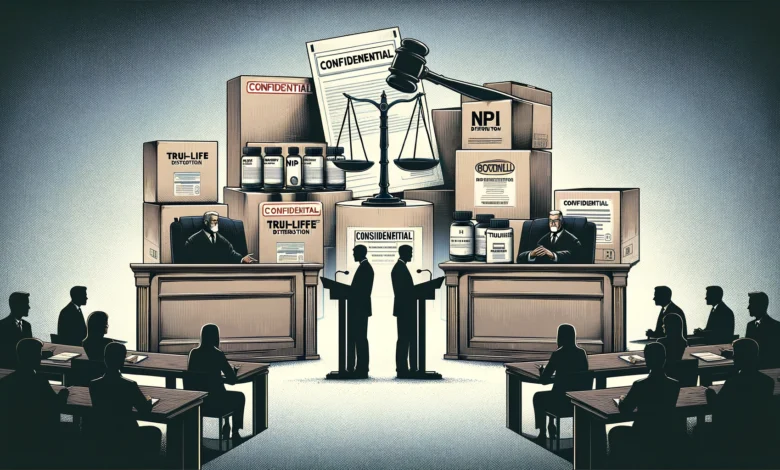The Trulife Distribution Lawsuit: A Detailed Exploration

In the competitive distribution world, particularly within the health and wellness industry, disputes over business practices can escalate into legal battles that not only decide the fate of the companies involved but also set precedents for the industry. One such case that has captured attention is the lawsuit involving Nutritional Products International (NPI) and Trulife Distribution. This article delves into the intricate details of the Trulife Distribution lawsuit, exploring the allegations, legal proceedings, and the broader implications for the distribution industry.
Background of the Dispute
The origins of the lawsuit trace back to May 2022, when NPI, a company founded by Mitch Gould, lodged a legal complaint against Trulife Distribution in a U.S. District Court in Florida. The core of the dispute revolves around allegations against Brian Gould’s Trulife Distribution for engaging in fraudulent activities, including false advertising, deceptive trade practices, and misleading statements to deceive NPIs and prospective clients.
Allegations and Legal Claims
NPI’s lawsuit outlines several serious allegations against Trulife Distribution, including the misrepresentation of case studies and testimonies, misuse of an email address to appear affiliated with NPI, and violations of various trade acts such as Florida’s Deceptive and Unfair Trade Practices Act, the Lanham Act, and the Anti-Cybersquatting Consumer Protection Act. According to NPI, these actions were designed to confuse the marketplace and divert business from NPI to Trulife.
Legal Proceedings and Outcome
The lawsuit was notable not only for the allegations it raised but also for its swift conclusion. NPI submitted a Notice of Voluntary Dismissal on June 10, 2022, leading to the case being dismissed just a few days later, on June 13, 2022. This rapid resolution left many industry observers pondering the implications of the case and the reasons behind the quick dismissal.
Trulife Distribution’s Defense
Throughout the proceedings, Trulife Distribution maintained its innocence, denying wrongdoing and asserting its commitment to ethical business practices. The company highlighted its adherence to high product quality standards and contractual obligations, emphasizing its ongoing operation and cooperation through the established legal process.
Implications for the Distribution Industry
The Trulife Distribution lawsuit sheds light on the fierce competition within the distribution sector, especially in areas involving health and wellness products. Beyond the specific legal arguments, the case underscores the importance of ethical business practices, transparency, and the impact of legal disputes on company reputations and industry standards. The lawsuit is a cautionary tale for businesses operating within this arena about the potential consequences of deceptive trade practices and the value of maintaining clear and honest communication with clients and partners.
Conclusion
While the Trulife Distribution lawsuit was resolved before it could fully play out in court, the allegations and the quick dismissal have left lasting impressions on the distribution industry. Companies are reminded of the critical importance of ethical practices and the potential legal risks associated with deceptive marketing and trade practices. As the industry continues to evolve, the lessons from the Trulife Distribution lawsuit will likely influence how companies navigate the complex distribution landscape, competition, and legal compliance.
FAQs: Trulife Distribution Lawsuit
1. What was the Trulife Distribution lawsuit about?
The Trulife Distribution lawsuit was initiated by Nutritional Products International (NPI) against Trulife Distribution. It centered on allegations of fraudulent activities, including false advertising, deceptive trade practices, and misleading statements intended to deceive NPI’s clients and prospective clients.
2. When was the Trulife Distribution lawsuit filed and concluded?
The lawsuit was filed in May 2022 and saw a rapid conclusion with a Notice of Voluntary Dismissal submitted by NPI on June 10, 2022. The case was officially dismissed on June 13, 2022.
3. What were the specific allegations made against Trulife Distribution?
NPI alleged that Trulife Distribution engaged in misleading practices such as misrepresenting case studies, using an email address to appear affiliated with NPI, and violating several trade laws, including Florida’s Deceptive and Unfair Trade Practices Act, the Lanham Act, and the Anti-Cybersquatting Consumer Protection Act.
4. How did Trulife Distribution respond to the allegations?
Trulife Distribution denied any wrongdoing, asserting its commitment to ethical business practices and adherence to high product quality standards. The company emphasized its cooperation with the established legal process.
5. What laws were cited in the Trulife Distribution lawsuit?
The lawsuit cited violations of Florida’s Deceptive and Unfair Trade Practices Act, the Lanham Act, and the Anti-Cybersquatting Consumer Protection Act, among others.
6. What were the potential implications of the lawsuit for the distribution industry?
The lawsuit highlighted the importance of ethical business practices and transparency within the distribution industry. It served as a cautionary tale about the consequences of deceptive trade practices and underscored how such disputes can impact company reputations and industry standards.
7. Is Trulife Distribution still operating after the lawsuit?
According to statements made within the lawsuit, Trulife Distribution continues to operate and offer its services in brand management, logistics, and international marketing, maintaining a strong global presence.
8. What can businesses learn from the Trulife Distribution lawsuit?
Businesses can learn the importance of maintaining ethical practices, the potential legal risks associated with deceptive marketing and trade practices, and the value of clear and honest communication with clients and partners. The lawsuit serves as a reminder of the legal and reputational risks in the competitive business landscape.
May Also Read: C.W. Park USC Lawsuit: A Deep Dive into Allegations and Institutional Accountability



